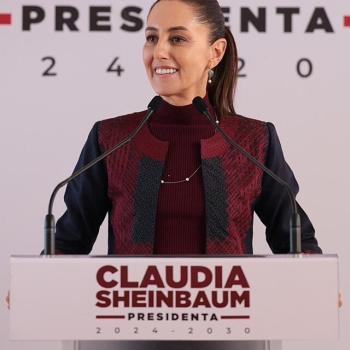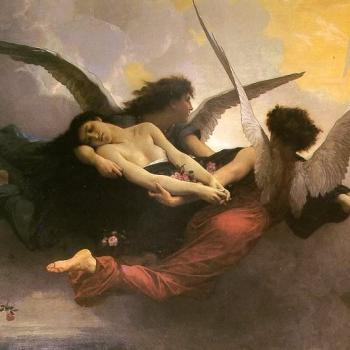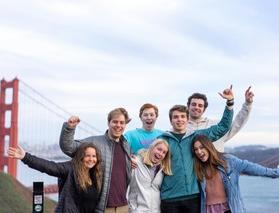Editors' Note: This article is part of the Patheos Public Square on the Pope in America: Implications, Collaborations, Challenges. Read other perspectives here.
I can remember, at age fourteen, the visit of John Paul II to Washington, D.C. in 1979. His helicopter landed on the National Mall near where the WWII Memorial is now. "Here come the pushers," grumbled one woman at the rope line as my grandmother and I, both of us Methodists who appreciated this historical moment, squeezed into the crowd.
That crowd was not very large. JPII was a new pope, relatively young, and almost no one knew he would become one of the decisive historical figures of his era, surviving an assassination attempt, encouraging independence for his native Poland, helping to defeat the Soviet Empire, reinvigorating orthodoxy within Roman Catholicism, proving himself a spiritual and intellectual giant who reshaped global life.
A much older man, Pope Francis will not fill his office for more than a quarter century like JPII. But in many ways he has excited far more public acclaim early in his pontificate than did JPII at a similar point. Like JPII he has an engaging and warm public persona. But unlike JPII he has excited widespread acclaim from the media and commentariate for ad hoc comments and some substantive actions implying he will liberalize the church.
Most of the secular chorus singing praises for Francis will be disappointed. He of course will not and cannot change central church doctrine and ethical teachings on issues like divorce, contraception, and homosexuality. Global Catholicism is not the U.S. Episcopal Church. Some of his offhand comments like "who am I to judge" have excited liberal expectations that cannot be fulfilled and may even provoke backlash upon the eventual realization.
But some appointments and initiatives by Francis have caused conservatives genuine worry. While JPII and Benedict stressed doctrinal and ethical orthodoxy after a period of theological drift, especially in the West, their successor seems to incline in what liberals acclaim to be a more open direction. Easing the pathway toward annulments and discussion about opening the Eucharist to divorced persons have signaled to many that this pontiff is trying to steer away from direct conflict with Western secularism.
The pope's encyclical on global warming and frequent critiques of global capitalism also signal that he has returned at least rhetorically to the 1970s era of Liberation Theology and apocalyptic concerns about ecological disaster. JPII was shaped by WWII and the Cold War, when totalitarianism was the chief threat to Christian civilization. He saw statism as intrinsically hostile to Christian-shaped political and economic liberty.
Shaped by the economic extremes and rightist military dictatorships of Latin America, Francis seems to appreciate the state more as a check on avaricious free markets that from his perspective exploit the poor and the environment. He also seems to connect capitalism to the commodification of human life, materialism, hyper consumerism, and family breakdown. It seems not unfair to surmise that this Argentine pope is more skeptical of the Anglo-American historical paradigm than his two predecessors, whose nations were liberated by that paradigm from dreadful tyrannies.
The Polish pope came to office when Western notions of liberty, and Christendom, were in retreat. The year of his first U.S. visit, 1979, was an especially grim year, characterized by the Iranian Islamist Revolution, the Soviet invasion of Afghanistan, and a global recession, all of which seemed parcel to the moral retreat of once more robust Christian shaped societies.
Pope Francis has entered the world stage at a time of unprecedented global Christian growth and equally unprecedented global economic growth that has delivered hundreds of millions from centuries of chronic poverty, disease, and brief lifespans. Yet the West is plagued by aggressive and dehumanizing secularism, while parts of the Global South and global church suffer from the advance of Islamism and other authoritarianisms that restrict or persecute Christianity.
It is too early to say whether this pope will fill the historical moment as did JPII when he first visited the U.S. thirty-six years ago. As a Protestant boy when I watched his arrival in Washington, D.C., JPII was primarily an exotic celebrity whom only later did I appreciate and admire as a great unifying figure for orthodox Christianity. Maybe Francis will also be remembered for reinvigorating his church and other churches for the betterment of all humanity. I hope so.
9/16/2015 4:00:00 AM




